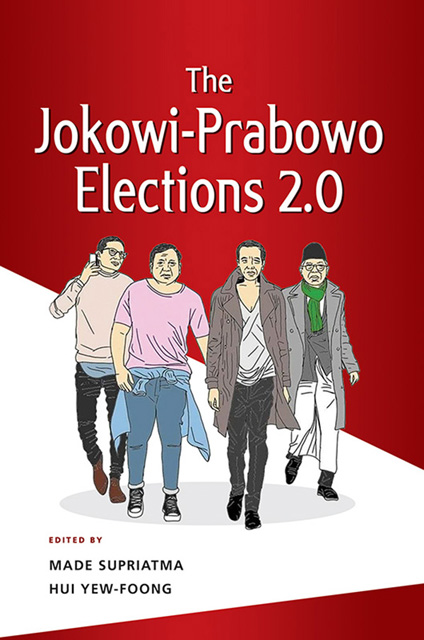5 - Disinformation, Post-election Violence and the Evolution of Anti-Chinese Sentiment
Published online by Cambridge University Press: 30 June 2023
Summary
Introduction
Indonesia's 2019 elections culminated in protests and riots on 21–23 May 2021, as partisans of the Prabowo Subianto–Sandiago Uno opposition coalition rejected the results of the presidential election, alleging electoral fraud by incumbent Joko Widodo (Jokowi). During the unrest, eight people were killed in clashes with police and hundreds more were injured. The violence, perhaps the first of its kind in the capital since 1998, was followed by the ritual search for the dalang (puppetmaster) of the riots. But this search obscured the fact that a wealth of open source data indicated that many of those involved in the street violence had acted spontaneously, motivated by misleading or false information. In particular, militant oppositionists were motivated by a concatenation of fake news reports claiming the election had been stolen, which culminated in the belief that their communities were under attack.
The riots in Indonesia in 2019 may mark the first time in a democracy that social media-driven misinformation and disinformation led to violent unrest after a national election. The case of Indonesia serves as a warning to democracies with electoral systems that are vulnerable owing to weakened media institutions, high social media penetration and populist politics.
Although the violence in 2019 was tightly contained by the authorities and limited to clashes between police and opposition activists in Central Jakarta, the unrest was correlated with a large spike in online fake news and conspiracy theories targeting China and the ethnic Chinese community. The recent origins of anti-Chinese disinformation in Indonesia can be traced to the 2014 election, when popular outsider Jokowi was smeared in unofficial “black campaign” material as the son of ethnic Chinese communists (Tyson and Purnomo 2017). This birther-style conspiracy theory continues to circulate in Islamist circles and was at the centre of a 2016 propaganda screed widely circulated online, Jokowi Undercover (Bambang Tri 2016). Such racist narratives build on a history of anti-Chinese sentiment in Indonesia (Purdey 2006). Increasingly, however, contemporary disinformation narratives draw less on history and more on geopolitics, reflecting growing anxiety over the rapid rise of China as a major power in Southeast Asia. China's rising hegemony is now the meta-narrative within which anti-Chinese disinformation is embedded in Indonesia.
- Type
- Chapter
- Information
- The Jokowi-Prabowo Elections 2.0 , pp. 90 - 106Publisher: ISEAS–Yusof Ishak InstitutePrint publication year: 2022



